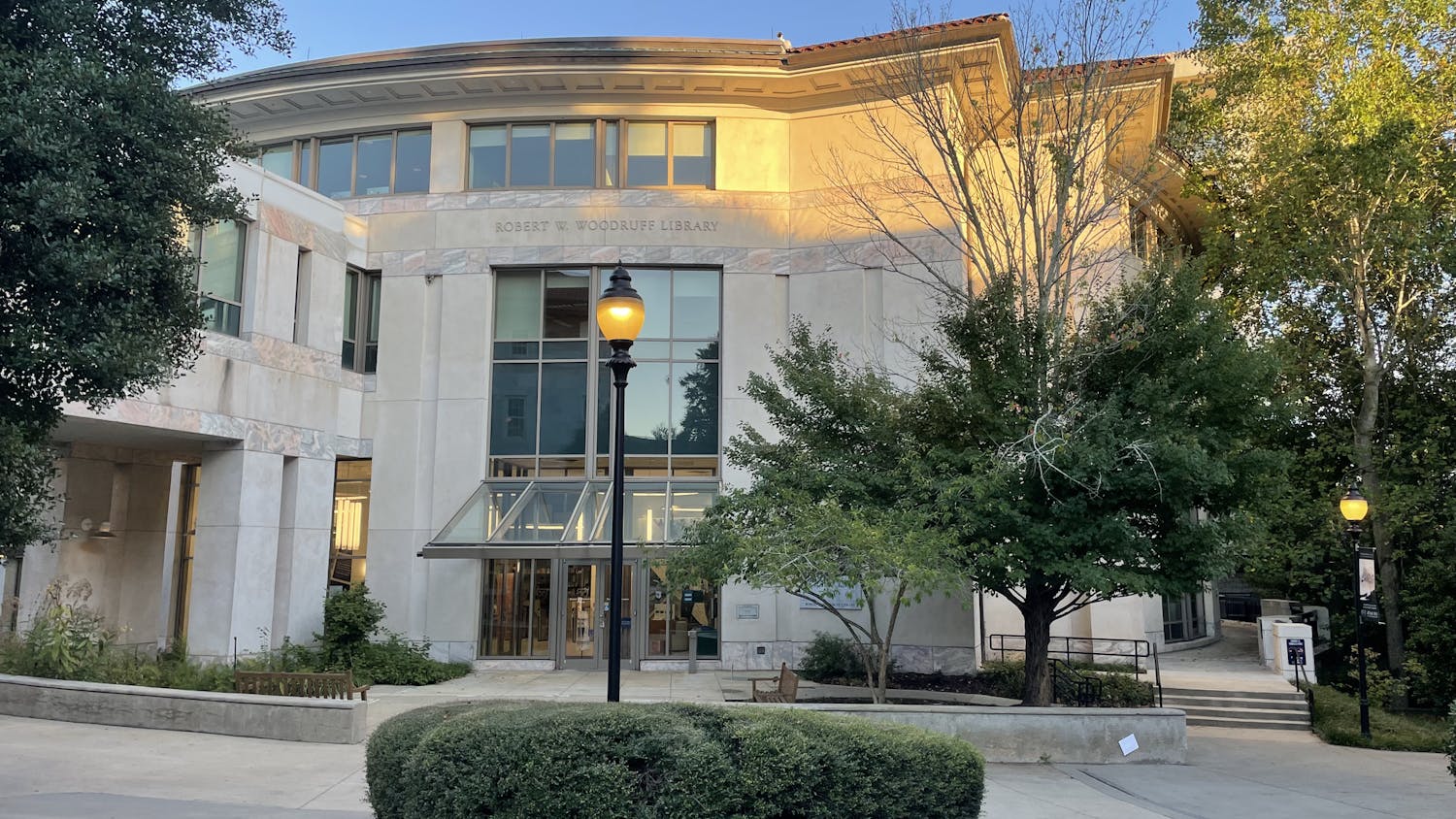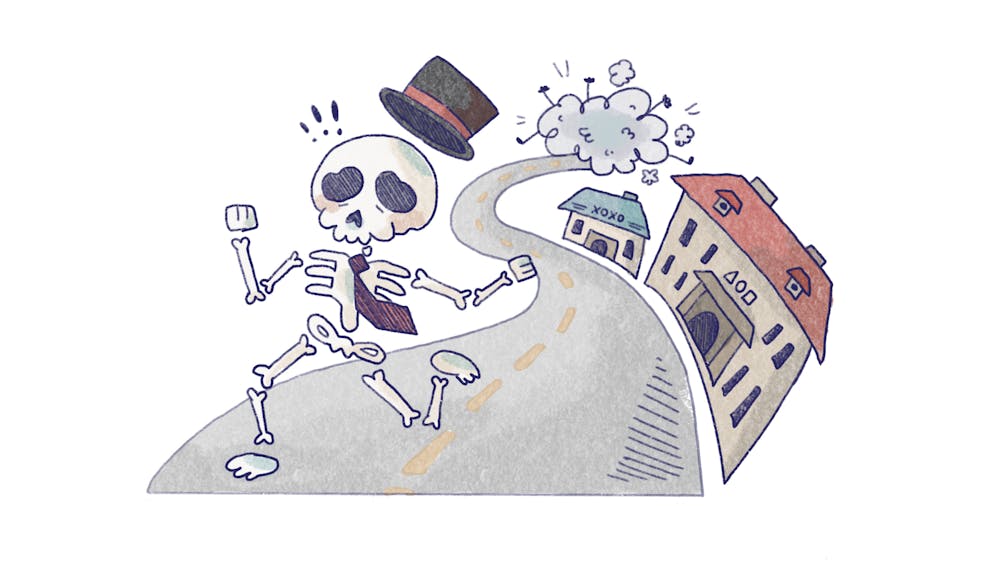Throughout the nation, Black women of all ages face a burdensome number of challenges as they attempt to navigate the taxing world of academia. From primary school to higher education, we remain painfully cognizant of the racial discrimination, gender bias and everyday microaggressions from our peers and teachers. This knowledge is devastating to the Black woman scholar’s self-confidence, it is a weight she must carry as she seeks academic growth.
Triumphantly, many will pursue various passions despite these obstacles in the spirit of radical Black women, like Kimberlé Crenshaw and Alice Walker. But for a large number of us, the Eurocentric design of academia quickly stifles our creative drive and quality of life. As a young Black woman scholar, I have witnessed first-hand these lifelong feelings of academic inferiority morph into a form of imposter syndrome. This phenomenon has gone on for far too long. We must end the inherently problematic cycle that continuously robs young Black students of equal opportunities in the academic and professional world. To do so means examining the various factors contributing to inequities in the Black woman’s academic experience, including negative racial stereotypes, classroom microaggressions and the Eurocentric design of academia.
The various racial stereotypes of African Americans stemming from slavery have largely shaped the negative academic experiences of Black women from an early age. Although slavery was abolished over 150 years ago, harmful caricatures of Black women prevail, parroted by the media, Black communities and American society. This influences Black women’s first experiences in school. Young Black girls are up to 11 times more likely to be suspended than their white female peers, and frequently face disciplinary action for minor infractions like dress codes more often than their white counterparts. When Black girls misbehave in school, they are deemed sassy, disrespectful and full of attitude — pushed into the “Angry Black Woman” or the “Sapphire'' trope from an early age.
These tropes prematurely influence our peers’ negative perceptions of us in childhood, embedding the idea that Black girls are less capable and more headstrong than other children, and they are carried along with us into adulthood.
When Black women enter higher education at predominantly white institutions like Emory, we are forced to confront a landscape visibly marred with the history of racism, classism and segregation. We live and study on campuses funded by the profits of slavery. While walking to class, we pass by historical monuments and buildings dedicated to slave owners. This is especially true of Black women who, like myself, have lived in the American South their entire lives. In primary school, I found confederate apologists and “Southern pride” at every corner, a phenomenon that slowly made me feel like an outsider in every classroom. As a first-year at Emory, I was exposed to vast sources of information on Black history and the Atlantic slave trade, as well as archives that one could only find in higher education. Yet, I lived in Longstreet-Means Hall, a complex named after the second and fourth presidents of Emory College, confederate slaveholders Augustus Baldwin Longstreet and Alexander Means.
For the Black student, it is impossible to escape the horrors of slavery and segregation, even at academic institutions like Emory that pledge anti-racism. These relics of slavery are an all-encompassing reminder that the injustices of the past are still alive today, albeit in different forms. Our journey in academia literally does not allow us to forget the historical violence our identities encompass.
On an even larger scale, we continue to face microaggressions and tone policing from our college-aged peers. I know my experiences with covert racism from other students on campus have contributed to the feelings of helplessness and being an imposter in higher education. As I’ve grown older, recognizing the microaggressions non-Black students and professors utilize against Black women has become easier; they point at us when it’s time to discuss slavery, they expect us to speak for all Black students, they wax poetic when we change our hairstyle and —my favorite — they repeatedly call us by the name of the other Black student in the class. The academic and personal insecurities we first found in childhood continue into our adult learning, reinforcing the negative association with academia many Black women scholars hold.
In response to the many challenges faced in higher education, Black women often feel the need to overcompensate for negative stereotypes in classroom settings in a way our non-Black peers do not. Our non-Black peers may be assertive and outspoken during classroom discussions without fear of being seen as rude or demanding by professors or classmates. This is an explicit representation of the “stereotype threat,” a situational predicament in which people are cognizant of negative stereotypes associated with their racial group, becoming increasingly anxious about their performance in relevant settings. From the effort of maintaining perfect manners in fear of being stereotyped as angry or sassy, to going above and beyond to prove our capabilities, these guards are incredibly exhausting to maintain. They are certainly representative of the hefty burdens Black women carry in white-dominated spaces. I know that as soon as I step into a space dedicated to Black women, I no longer have to worry about being spoken over, disrespected and “othered.”
These factors are ultimately detrimental to the Black woman scholar’s academic and post-graduate growth. Many of us are unsure of our leadership capabilities and ability to spearhead independent projects in fear of being seen as controlling or underprepared. We second-guess our capacity to succeed, continuously doubting our “legitimacy in academia” and feeling as if we must prove that we are not a diversity hire or acceptance. It is incredibly challenging to not give in to negative feedback because we are surrounded by it. From public debates on equity and inclusion to politicized conversations about privilege and affirmative action, Black women are pushed to hyper analyze their work in fear of being seen as inferior.
Students and faculty must fight to change this narrative at Emory to allow for equitable learning experiences. We need to ensure that Black women no longer feel intimidated or uncomfortable in academic spaces. This means that non-Black professors and students must remain mindful of gross racial stereotypes and biases in the classroom and call them out when they are utilized by others. The roots of modern racial and socioeconomic inequities must also become common knowledge within the Emory community. If we can foster a deeper understanding of Black history and misogynoir among all students and faculty, we may be able to create an inclusive environment for Black women scholars at Emory.
The Eurocentric design of academia makes it easy for Black women to feel isolated and unimportant in predominantly white spaces. In order to challenge the negative experiences that Black women face in educational settings, we must first address and reform the roots of Black women’s academic inequities, starting at the primary school level. We must recognize and call out the unjust American public education system and racial stereotypes that persist. Young Black girls need the safe spaces and mental health resources — from Black women counselors to mentorship programs with Black college students — to exist freely in schooling, as well as in all walks of life, in order to truly foster academic equity.
Leah Woldai (23C) is from Lawrenceville, Georgia.
This article is one part of “1963,” an investigative opinion project. Read the rest here.







